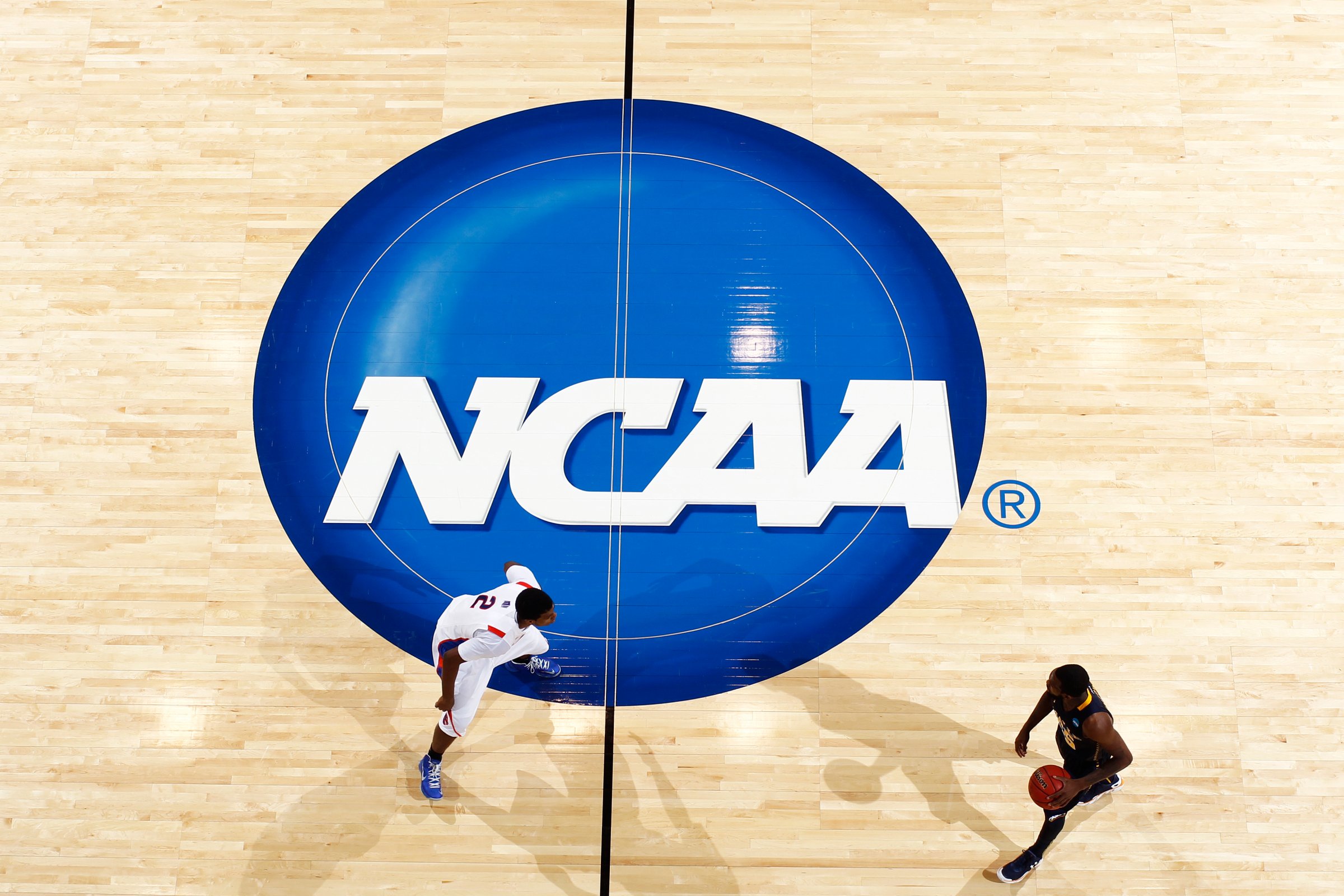
The NCAA doesn’t need to compensate college athletes beyond paying for the cost of their attendance, a federal court ruled Wednesday. In a mixed ruling for both college athletes and the NCAA, the court also found that the NCAA had violated antitrust laws by limiting what student athletes may receive while playing college sports.
The ruling from the U.S. Court of Appeals for the Ninth Circuit comes more than five years after former UCLA basketball star Ed O’Bannon sued the NCAA for using his name and face on television and in video games without compensation. The NCAA argued that providing players with a share of that compensation would be antithetical to its mission of fostering amateur sports.
Last year, a federal judge suggested that players should be able to receive up to $5,000 a year in deferred compensation. Wednesday’s judgment overrules last year’s outcome, but supports the charge that the NCAA violated antitrust laws.
“The NCAA’s rules have been more restrictive than necessary to maintain its tradition of amateurism in support of the college sports market,” the ruling read.
In a statement, NCAA representatives said they ARE still assessing the impact of the ruling.
More Must-Reads From TIME
- The 100 Most Influential People of 2024
- Coco Gauff Is Playing for Herself Now
- Scenes From Pro-Palestinian Encampments Across U.S. Universities
- 6 Compliments That Land Every Time
- If You're Dating Right Now , You're Brave: Column
- The AI That Could Heal a Divided Internet
- Fallout Is a Brilliant Model for the Future of Video Game Adaptations
- Want Weekly Recs on What to Watch, Read, and More? Sign Up for Worth Your Time
Write to Justin Worland at justin.worland@time.com